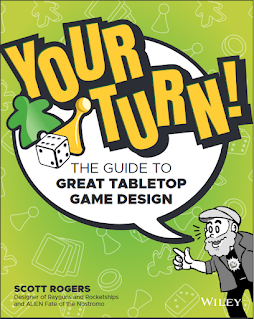
Nintendo has just announced that the next version of the DS will feature glass-less 3D graphics. As several people around the web are guessing just how they are going to pull this off, I found this video showcasing an I-phone app called "Word Fu"

Sadly, the game play isn't getting very good reviews but the technology is pretty cool. It's worth taking a look just for the tech.
However, all of this talk about 3D in games and movies has got me thinking about whether it is really "the next big thing" - which leads me to the logical thought about 3D movies. I think I saw EVERY theatrically released non-porn 3D movie that came out in the 80's. (There's a really good list that includes everything including theme park rides and IMAX movies here)
This includes:
">
The wretched Spacehunter: Adventures in the Forbidden Zone
The awful MetalStorm: The destruction of Jared Syn
">
And the truly terrible Treasure of the Four Crowns.
There's something magical about an object coming right out in front of your face. I still remember being mesmerized by the floating potato/asteroid from the beginning of Captain Eo. (Why take it from me? Grab your red/cyan 3D glasses and watch it for yourself! By the way, They're showing Captain Eo again for a short time at Disneyland. I've got to go check it out!)
">
But 3D was just a gimmick used (twice!) by desperate movie theater owners to lure audiences away from their TVs. The battle is as the internet, gaming and TV draw modern audiences away from the movie theater. How long will the 3D phenomena last? Until audiences get tired of paying extra for it, I'd guess.
So what does this mean for gaming? I was reading a thread about 3D technology and a game developer quipped that "all games are 2D anyway" - which is a good point. 3D doesn't matter unless we are using it for more than visuals. Right now, 3D just means that you can see depth or maybe the sides of objects. (If that's all you need, then check out the cool Nvidia glasses that can convert any game to 3D with little to no work from the developer.)
I hear you say "It will help the player become more immersed in the game!" I retort with games are already immersive enough. People are starving themselves to death while playing video games! How much more immersive do you need it to be? While I don't think 3D is anything more than an enhancement to a game, I know (OK, I hope) that the industry is smart enough to treat it more than "Dr. Tongue's 3D House of Wax."
What will it mean to truly make 3D games? Here's some thoughts:
1) Games play is based on depth perception. This is tricky because video games have got really good at eliminating the need for depth perception. Think about a video soccer game. In soccer, depth perception matters alot. You use it to estimate how close the ball or an opponent is from you, how far you are from the goal so you can gauge the strength of a kick, how far down the field you are going to have to run and for how long before you get to where you want to go. Games have successfully boiled soccer down to this:

Granted, there is a lot missing from this version of soccer, but the basic gameplay and feel is still there - moving up and down the field, passing, getting into position to score, trying to block/intercept an incoming shot.
So how is a full 3D version of soccer going to play any better? Not with the addition of a 3D camera. The above version shows me more than my human eyes could ever show. I can see the position of the ball, all of the players and their relationship on the field at a glance. Other than getting outside and some exercise, the video game soccer game is a superior version to reality.
So really, what I'm getting at is, developers will have to answer the question "What games will be best for 3D?" Not everything will be best for 3D although I'm sure we'll see every a 3D game in every genre at the next two or three E3s.
I think a good game to showcase depth in 3D is something like Operation.

Operation requires having to move the tweezers past the electric buzzer layer. That layer matters because to touch it means failure. Depth becomes part of the challenge, not just something to make things look prettier.

2) Games will have to utilize the concepts of "behind", "above", "below" and "around". But games already do this functionality pretty well. Many games allow the player to examine a 3D object in the game world or inventory by moving and rotating it around in space and video gamers have been used to moving around in 3D space since Castle Wolfenstein. But what about the manipulation of objects? I'm not talking about Hidden object games (which I predict we'll be seeing many games use the "lift up and examine" mechanic until we're sick of it.) I think the real advancement will be in the building and creating space. Think of it, you can have a complete collection of 1000's of virtual Legos to build and create with without having them scattered all over your house and stepping on them with bare feet in the middle of the night.
Sadly, we're going to see alot of 3D Hidden object games as a by-product. While I have nothing against these "games", I don't think of them as games. They're more like puzzles - things to do when you can't go outside to play. Expect to see the "lift up and examine" mechanic to be over-used until we're sick of it. And another thing, ultimately, how much reality do we really need in our games? ">Sony Move demo video. Sure making a map appear out of thin air and lying it down on a virtual table is cool, but the more I think about that video, the more I wonder do we want to replicate reality?

3)Complimenting the simplification of reality - because of technological limitations, video games are excellent (not just really good, but excellent) at reducing real world actions into simple controls. I don't know about these motion controllers. I've made several Wii games and the more the development teams worked on them, the less motion controls they built into their games. Video game controls are a brilliant design in efficiency. They allow you to do very complex moves with a minimum of effort. Look at God of War for example. While the player can pull off some pretty complex combat moves, severely complex moves like killing a boss and mundane activities like opening doors and chests have been reduced down to a simple button press at the right time. Compare that to Heavy Rain which takes simple activities like opening a refrigerator door, walking up a hill or starting a car and makes them complex player actions with multiple stick moves and button presses. Players are over the Wii motion controls already. Is Move or Natal going to re-excite or will they react to it the same way people react to the Wii? A part of me believes that players want their games to be real-looking but not real-playing.
Ultimately, I'm sure 3D will bring some cool things with it and push visuals and game play towards reality, but the trick will be to remember that it's still just a game. To paraphrase George Lucas "A special effect is a tool, a means of making a game. A special effect without gameplay is a pretty boring thing."




















